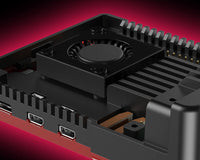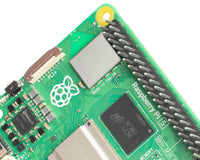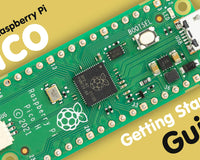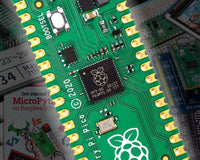
Pokemon gets the Raspberry Pi treatment, plus vinyl records and a security update for Raspbian in today's Roundup!
Pokemon Pokedex

Philip Organ, a 12-year old, year 7 student from Birmingham. He has recently been captured by the Pokemon Go craze and wanted to bring a bit of Raspberry Pi know-how to the game. So, he took a Pi, added a couple of screens, a camera module and a keypad and then constructed a laser-cut case at his local Makespace. His Dad, Spencer, admits to helping him a little – by driving him to the Makespace and, of course, being the Bank of Dad – but apart from transport and money, it’s all Philip’s own work!
What you do is to type in the number of the Pokemon into the keypad and then the large screen displays a picture of the chosen monster. The smaller screen is used for menu selection. You can read more about it on the UK Tech Reviews blog, see the code on GitHub and you can see Philip giving a talk at CamJam about the project below.
Vinyl

Mike Smith has a lot of vinyl records and he has trouble keeping track of where they all are located on his shelves. So, he took a Raspberry Pi, lots of Neopixel strands and Adafruit’s FadeCandy board to control them. The Pi has a web interface and database of all the records and their locations. When you select the record, the Pi sends a signal to the FadeCandy which then flashes all the Neopixels in the individual cubby hole where the record resides, followed by a single flash of the Neopixel closest to the record. The whole system is also capable of putting on some impressive lighting effects, also controllable via the web interface. If you want to know more, Mike will be filling in details here and you can view the system in action in the video below:
Dirty Cow

There is a security vulnerability affecting Linux at the moment called “Dirty Cow”. It affects the copy-on-write mechanism (hence the name) and can be very dangerous as it allows malicious hackers to take control of your computer or device, including the Pi. Thanks to the engineers at Raspberry Pi, there is already a fix available for our single board computers. To install it, do the following at the command prompt:
sudo apt-get update sudo apt-get install raspberrypi-kernel
Thanks to The MagPi for posting about this.





